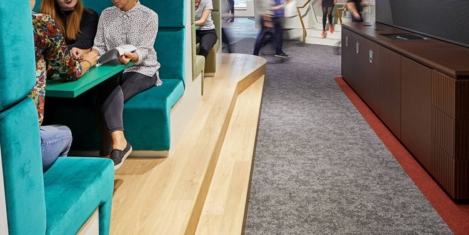To provide the best experiences, we use technologies like cookies to store and/or access device information. Consenting to these technologies will allow us to process data such as browsing behaviour or unique IDs on this site. Not consenting or withdrawing consent, may adversely affect certain features and functions.
The technical storage or access is strictly necessary for the legitimate purpose of enabling the use of a specific service explicitly requested by the subscriber or user, or for the sole purpose of carrying out the transmission of a communication over an electronic communications network.
The technical storage or access is necessary for the legitimate purpose of storing preferences that are not requested by the subscriber or user.
The technical storage or access that is used exclusively for statistical purposes.
The technical storage or access that is used exclusively for anonymous statistical purposes. Without a subpoena, voluntary compliance on the part of your Internet Service Provider, or additional records from a third party, information stored or retrieved for this purpose alone cannot usually be used to identify you.
The technical storage or access is required to create user profiles to send advertising, or to track the user on a website or across several websites for similar marketing purposes.
 IT consultancy Infosys has released new research, the Infosys Digital Radar 2019, which it claims reveals the digital transformation maturity of businesses around the world in 2018, and what it takes to navigate the next stage of their journey. Its main claim is that to become digitally advanced, organisations need to run multiple digital initiatives at scale at the same time. It suggests that organisations in the UK are now significantly ahead of the global average when it comes to their digital transformation, including countries like the United States and Germany.
IT consultancy Infosys has released new research, the Infosys Digital Radar 2019, which it claims reveals the digital transformation maturity of businesses around the world in 2018, and what it takes to navigate the next stage of their journey. Its main claim is that to become digitally advanced, organisations need to run multiple digital initiatives at scale at the same time. It suggests that organisations in the UK are now significantly ahead of the global average when it comes to their digital transformation, including countries like the United States and Germany.



































January 25, 2019
The state of the workplace right now? Everywhere and nowhere, baby 0
by Paul Carder • Comment, Facilities management, Features, Premium Content, Property, Workplace design
More →